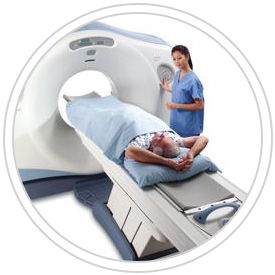Cancer Screenings & Diagnosis
 Cancer screenings at Tri-City Medical Center can detect signs of the disease before you experience symptoms. When you regularly get the screenings that are right for your gender, age, lifestyle and family history, you face better odds of catching cancer early—when treatment works best. If a screening reveals abnormalities, our comprehensive diagnostic services will determine whether the findings indicate cancer. Then, you’ll get recommendations for follow-up care that helps you stay as healthy as possible.
Cancer screenings at Tri-City Medical Center can detect signs of the disease before you experience symptoms. When you regularly get the screenings that are right for your gender, age, lifestyle and family history, you face better odds of catching cancer early—when treatment works best. If a screening reveals abnormalities, our comprehensive diagnostic services will determine whether the findings indicate cancer. Then, you’ll get recommendations for follow-up care that helps you stay as healthy as possible.
Cancer Screenings
Ask your doctor which cancer screenings may help protect your health.
Tri-City Cancer Information
Cancer Services & Treatments
Lung Cancer Screening
If you smoke or used to smoke, you may qualify for a low-dose CT lung cancer screening—a brief, painless procedure that minimizes radiation exposure. Learn more about the lung cancer screening and other lung cancer services at Tri-City Medical Center.
Breast Cancer Screening
To detect a problem in your breasts, your physician may recommend one or more of these procedures:
- Digital mammography – Employs X-rays to let doctors quickly see inside your breast tissue
- Gamma-ray mammography – Uses a special form of light to reveal abnormalities in your breasts
- Breast MRI – Relies on a magnetic field to provide a view of your breast tissue
- Breast ultrasound – Uses a handheld device that sends sound waves into tissue to create an image of your breasts
Diagnostic & Imaging Procedures
Your physician may use imaging or lab procedures to help diagnose cancer and determine where it has spread in your body. Physicians will work to determine if a biopsy or alternative procedure is right for you.
Computed Tomography (CT) Scan
During a computed tomography (CT) scan, you’ll lie inside a machine with an X-ray beam that rotates around you to create three-dimensional images of the inside of your body. The scan will take a few minutes and identify tumors that may be cancerous.
Magnetic Resonance Imaging (MRI)
Magnetic resonance imaging (MRI) uses magnets to create images of your soft tissues from many angles. It helps doctors find cancerous tumors and determine where the disease may have spread. Ask about getting a scan in Tri-City Medical Center’s open MRI machine, which helps prevent claustrophobia.
Nuclear Scans
Before a nuclear medicine scan, you’ll swallow, inhale or receive an injection of a mildly radioactive substance that doctors see with a special camera. Because cancer cells absorb different amounts of the substance than healthy cells, doctors can use nuclear technology to pinpoint where the disease has spread in your body.
Your specific nuclear medicine procedure may involve:
- Positron emission tomography (PET) or single photon emission computed tomography (SPECT) – Identifies tumors that other imaging techniques don’t detect
- ProstaScint® – Reveals the spread of prostate cancer
Image-Guided Biopsies
Your doctor may use images to guide small medical instruments to the site of tissue that may be cancerous and then take a sample for biopsy, or examination. Image-guided techniques help your physician avoid affecting nearby, healthy tissue as much as possible. Because this approach is minimally invasive, you’ll feel less pain, notice little scarring and enjoy a faster recovery than after an open surgical biopsy.
Lab Tests
Depending on your type of cancer, a doctor may request a sample of your blood, bone marrow or urine to examine in a laboratory. The sample could show how well your disease is responding to treatment or whether cancer has returned after remission. Learn about specific laboratory tests for cancer.
